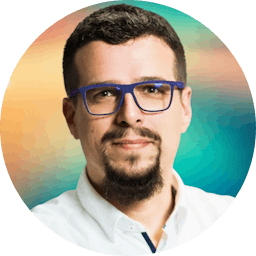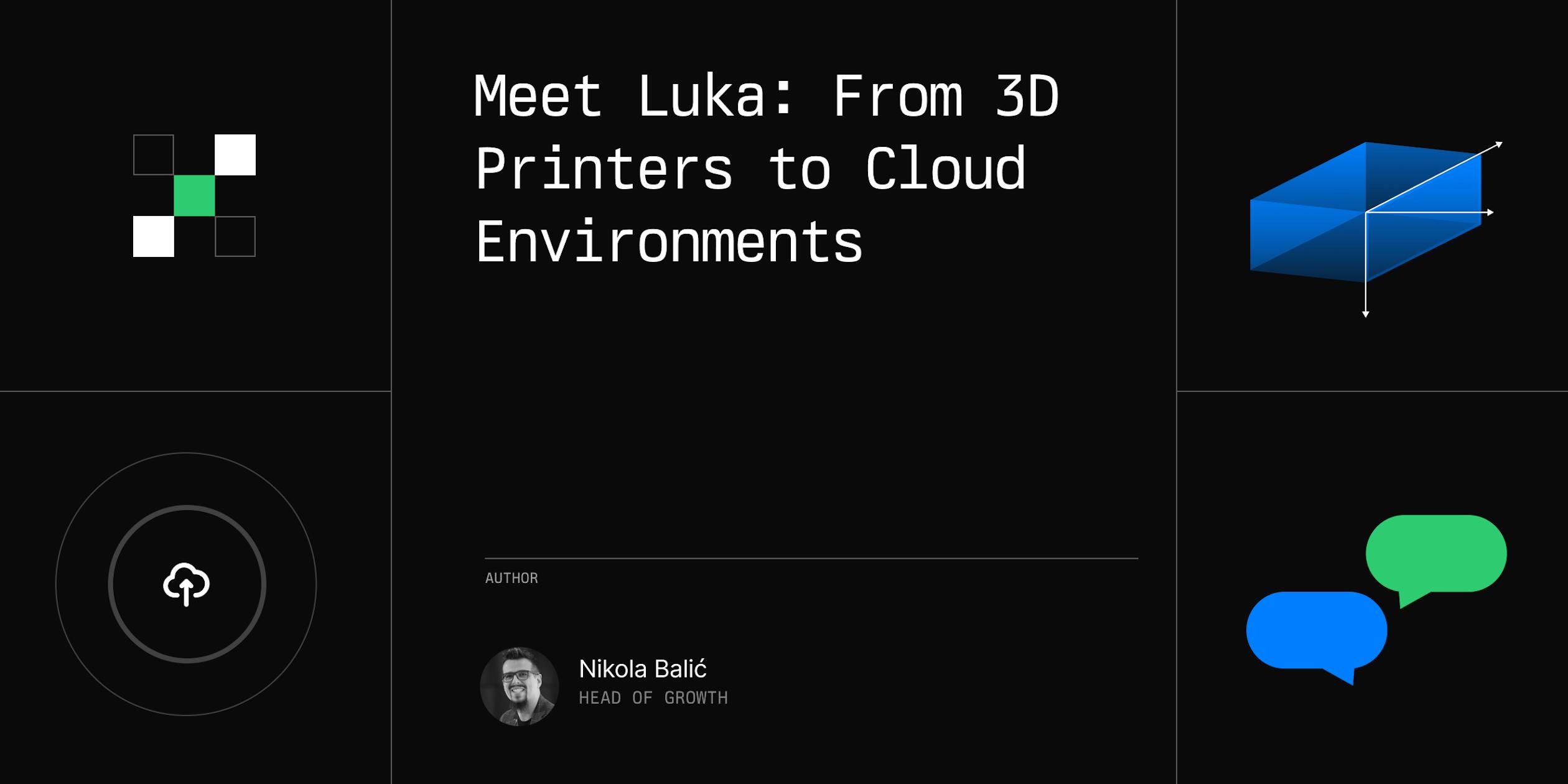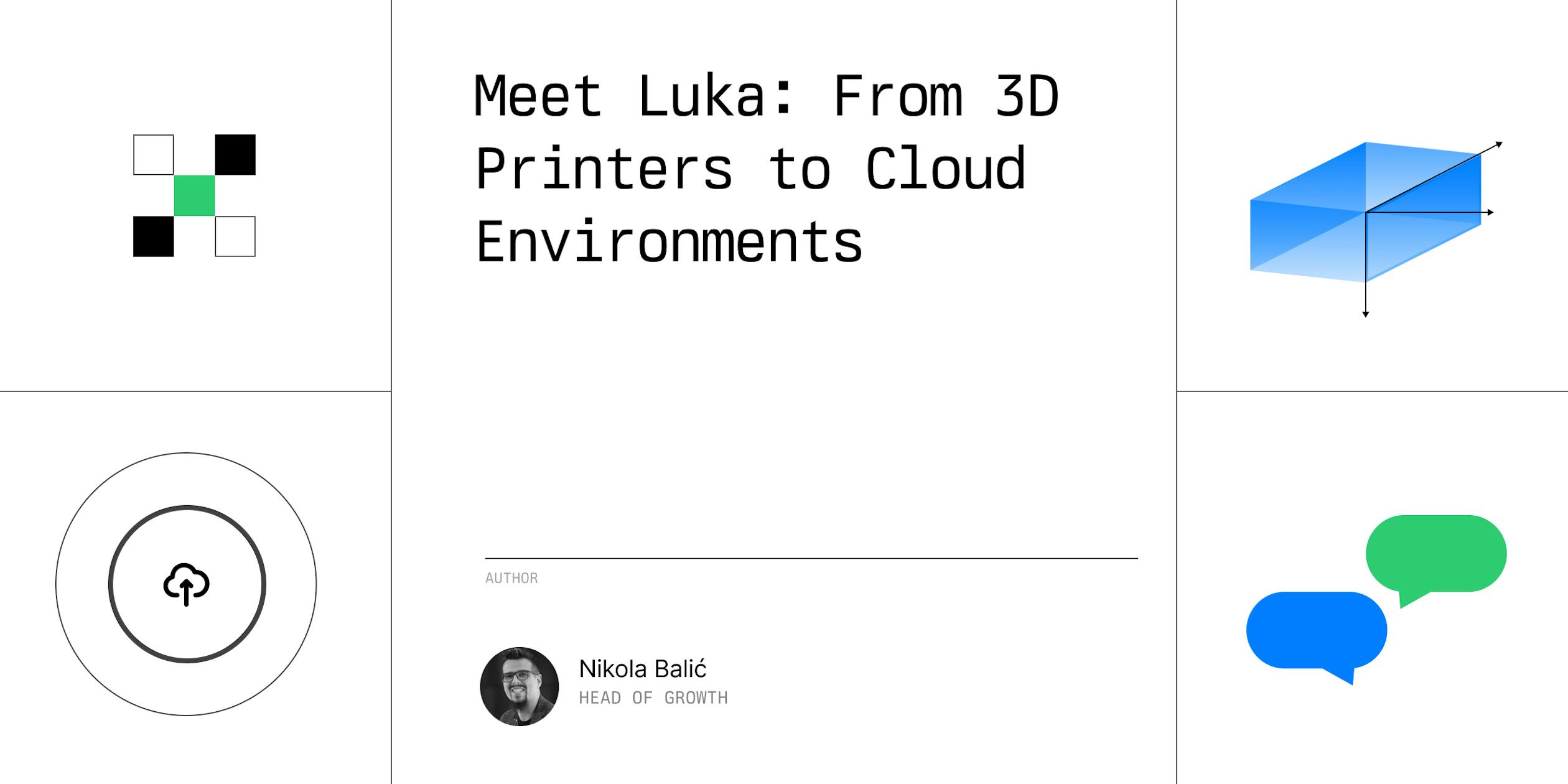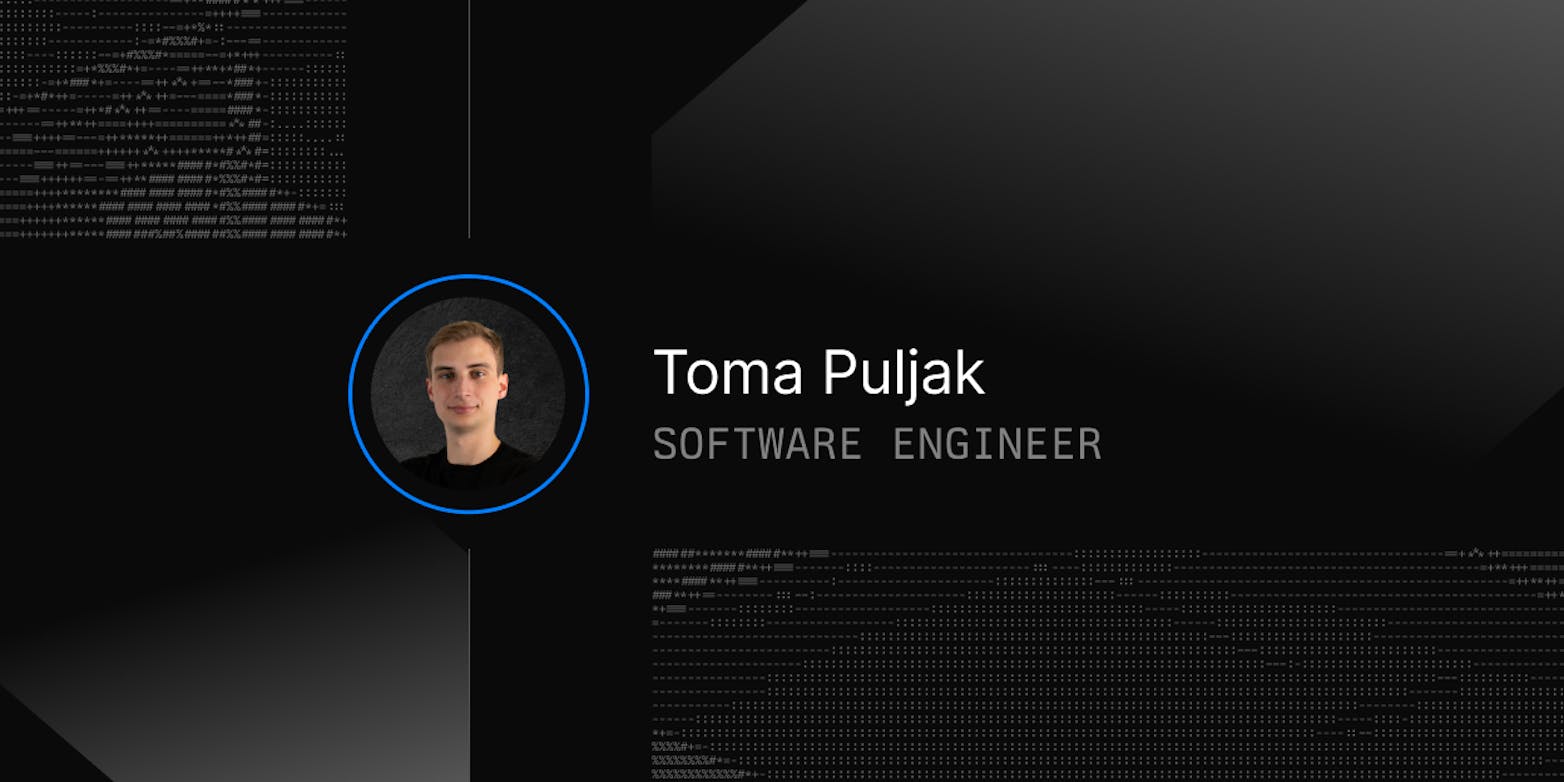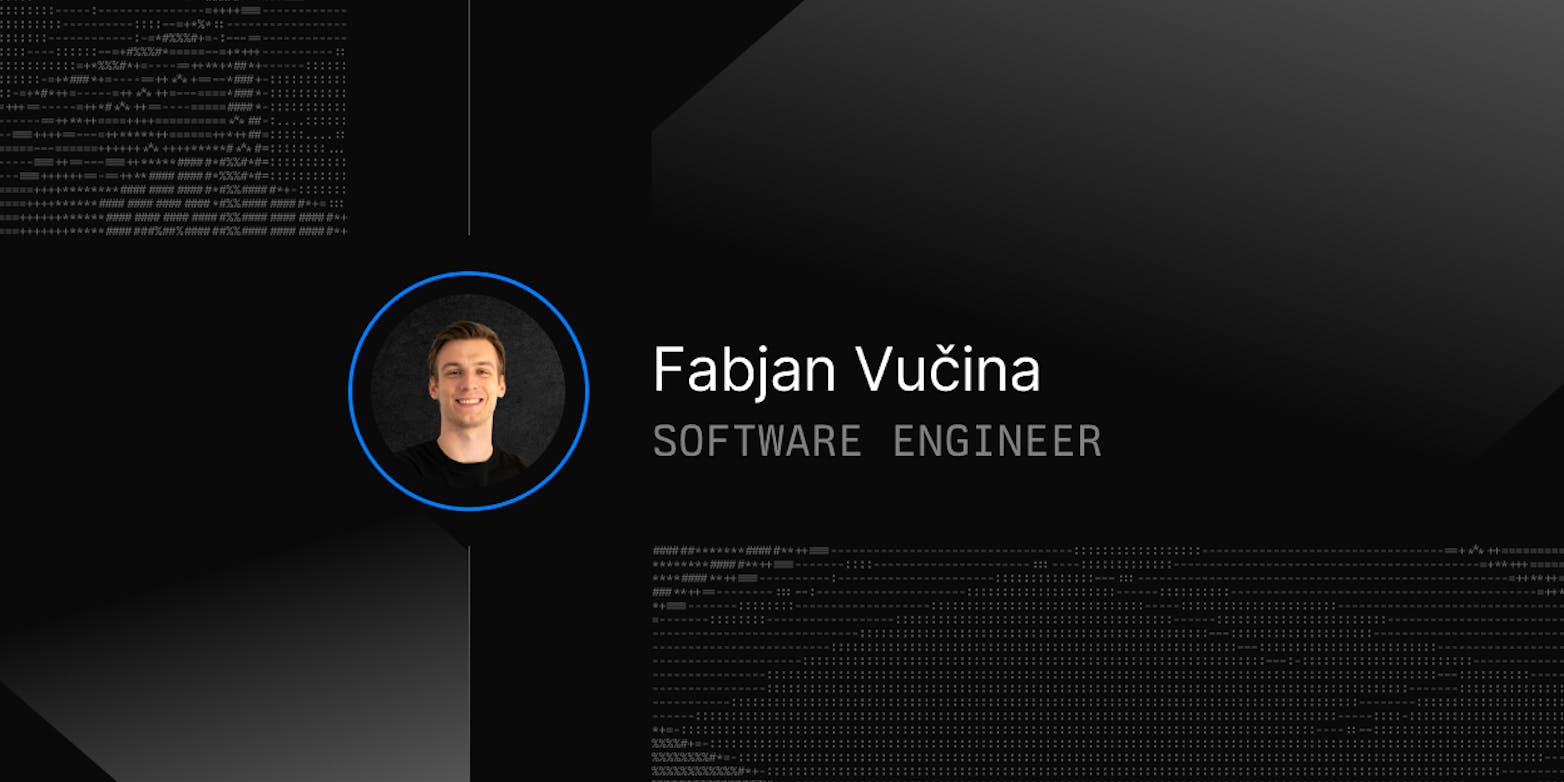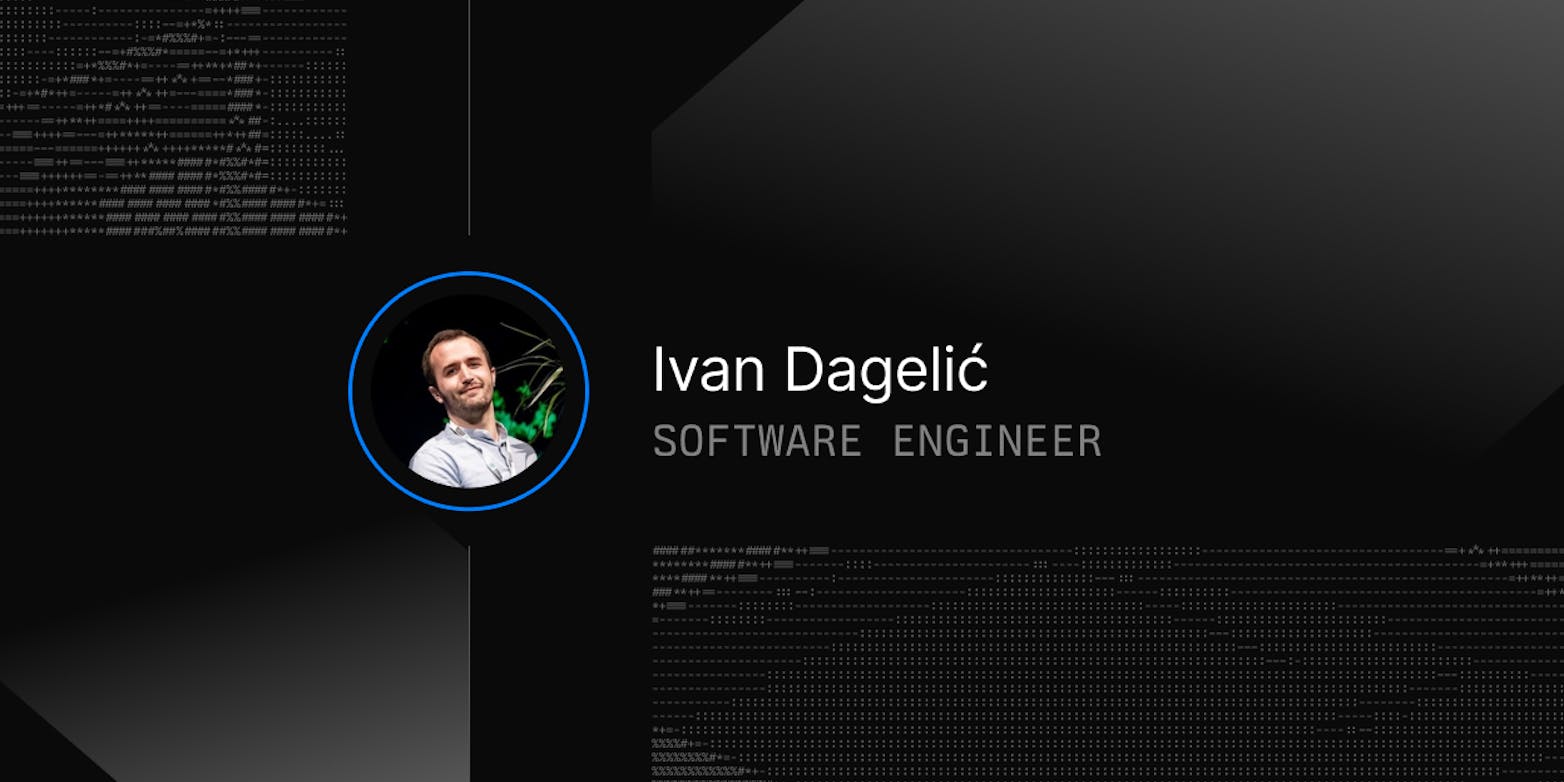Luka Brečić's path to becoming a Software Developer at Daytona began with an unexpected twist in high school. We sat down with Luka to discuss his journey from enthusiast to professional, his views on open-source development, and his thoughts on the industry's future.
Luka's story showcases how passion and hands-on experience shape a developer's career. From co-founding a STEM association as a teenager to his software engineer role at Daytona, his experiences reflect the diverse influences that shaped his career.
In this interview, Luka shares insights on his formative projects, the value of practical learning, and his perspective on AI's role in software development. Join us as we explore the unique path that led Luka to Daytona and hear his vision for what's next in the field.
Early Beginnings in STEM
Can you tell me about your beginnings, especially the STEM association you were involved with?
It's a fun story. I was actually considering becoming a doctor initially. But in high school, we had exceptional professors who introduced us to new technologies. A pivotal moment was when they took us to a 3D printing workshop in Zagreb. This experience sparked something in me and my classmates.
At that time 3D printing was a relatively new technology in commercial and especially personal use. That's how we came up with the idea for our STEM association, Acervatio. Our goal was to learn beyond what school could teach us and then share that knowledge with other interested students.
What kind of projects did you work on with Acervatio?
We even ran a crowdfunding campaign to buy our first 3D printer. Later, we spent about four and a half months building our own 3D printer, which achieved 87% precision. Following that success, we organized a hackathon where we challenged ourselves to create another printer in just 36 hours – a goal we successfully accomplished.
"The experience of building our own 3D printer and teaching others was my first real encounter with engineering, teamwork, and programming. It shaped my entire career path."
The Path to Professional Software Development
In what ways did your early experiences influence your journey into software development?
They were crucial. It was my first real encounter with teamwork, mechanical engineering, and programming. While I wasn't at the forefront of programming then, it opened my eyes to the possibilities.
Through Acervatio, we started giving classes to 30-50 children weekly in schools across the Neretva Valley. I also participated in various competitions and events.
This experience led me to events like Dump in Split, where I first met my current colleague, Toma. We didn't become close friends immediately, but it was the beginning of a connection that would prove significant later.
How did you transition from these early experiences to your professional career?
My experiences with Acervatio pushed me to become practical quite early. By my third year at university, I felt I needed more hands-on experience. I took a small break from studies to gain more practical experience.
I worked at two companies before landing my first serious job. My love for Go (the programming language) kept me going. I even created a programming language for sound synthesis as part of my bachelor's degree thesis.
My first real internship was at EveryMatrix, formerly known as Leapbit. This was my first professional experience working with Go, which really cemented my passion for the language.
You mentioned a passion for programming languages. Can you tell us more about that?
When I was writing my thesis, I had to create a programming language for sound synthesis. This project introduced me to language parsers and generators, which fascinated me. Then I discovered Go, and it was like a revelation. I often describe Go as "C on steroids." It's an incredible language that's hard to fully appreciate until you've worked with it extensively.
Daytona and Open Source Development
Can you tell me about your current role at Daytona?
I joined Daytona in April this year as a software engineer, primarily working on back-end development. The interview process was unique and, in my opinion, the best technical interview I've had. It involved a 2-3 week trial period, which I found very effective.
What drew me to Daytona was their focus on cloud development environments and management, which I believe is the future. I was also impressed by their code structure and approach to clean coding and code style when I first opened their repository.
Daytona has a strong focus on open source. What are your views on open source development?
I'm a strong advocate for open source. It aligns with the spirit of free and accessible knowledge. My master's degree thesis work is based on open source, and I use Daytona's tools daily for my personal projects.
"Open source is more than just free products. It's about sharing knowledge, building networks, and being part of a larger community."
I think that open source itself doesn't just bring the idea of a free product. It's a much broader story about knowledge sharing, networking, and being part of a larger community. Especially for new programmers, it's an excellent opportunity to expand their skill set and contribute to something bigger.
How has your experience at Daytona been so far?
Working at Daytona has been a great learning opportunity. In just two months, I've touched on various aspects from secure connections to classic software development, which has really broadened my skills. The team is super accessible, and I appreciate their philosophy about clean coding and maintaining a consistent style throughout the project.
The Future of Software Development and AI
Looking towards the future, how do you see the role of AI in software development?
In my opinion, AI is a great tool with various possibilities but also it has some significant limitations still. It can speed up certain processes, but it is still not able to replace human creativty and problem-solving virtue. As a dear friend of mine once wisely said, "Certain people who like to go through life 'the easier way' will not be very fond of how AI is going to impact them.', and I'm really fond of the thought which is highly relevant for programming. While AI can for sure be a great advisor and it can help solidify some solutions, coming up with innovative ideas and tailored solutions is still a significat human strength.
I believe AI will become an indispensable tool for developers, but it's crucial to remember that AI is just that - a tool. The real magic happens when skilled developers leverage AI to enhance their creativity and problem-solving abilities, not replace them.
"AI is a tool with both possibilities and limitations. While it can speed up certain processes, it can't replace human creativity and problem-solving skills in software development."
Any final thoughts for aspiring developers?
Remember that no one can steal your knowledge. If you're passionate and dedicated, there's no need to fear new technologies. Keep learning, stay curious, and don't be afraid to contribute to open-source projects. That's where real growth happens.
As our conversation with Luka Brečić came to a close, it was clear that his journey from a high school 3D printing enthusiast to a software developer at Daytona was driven by passion, a hard commitment to continuous learning and curiosity above all.
If you're interested in learning more about Luka's work or discussing his views on open source, Go programming, or the future of software development, don't hesitate to reach out to him. You can connect with Luka on Twitter @lbrecic or on LinkedIn @lukabrecic.
